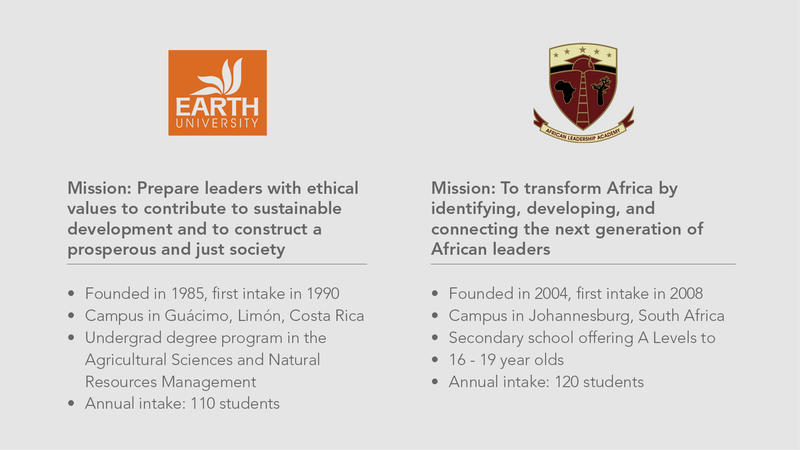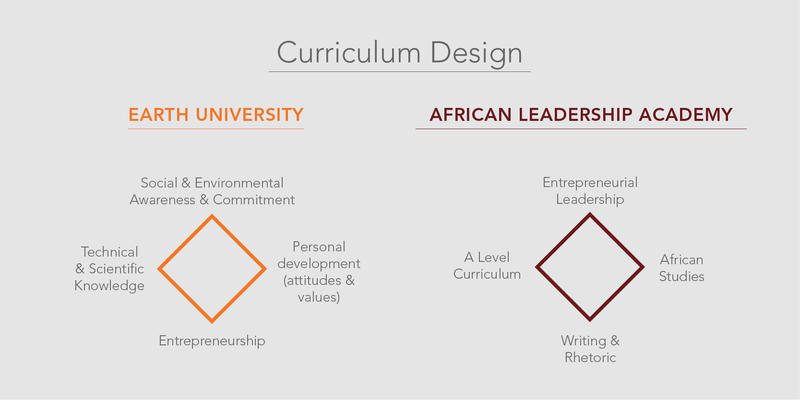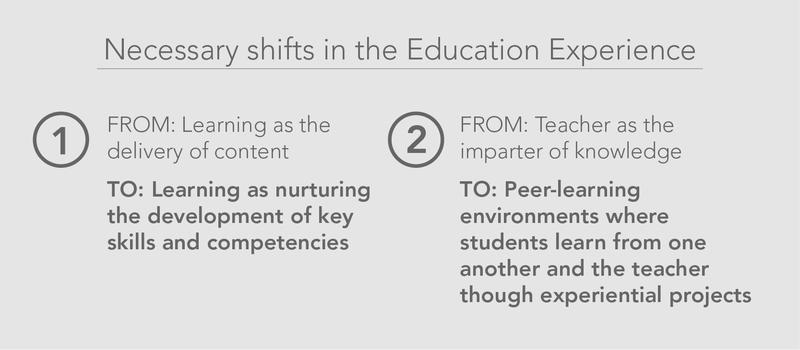Making Leadership Great Again: Breakthrough Educational Models
Making Leadership Great Again: Breakthrough Educational Models
Forging Common Ground – Series of Oxford Student Insights to the Skoll World Forum 2017.
Gillian Benjamin, Oxford MBA at the Saïd Business School, shares key takeaways from the Skoll World Forum session “Making Leadership Great Again: Breakthrough Educational Models”.
In the lunchtime session directly prior to this panel, Bill Drayton, Founder and CEO of Ashoka, implored audience members to help others understand the implications of the new world order in which the repetitive actions of a machinist on a factory floor, or a line manager in a multi-national company, were fast becoming redundant. He highlighted the need for a radically different skill-set and ‘growing up system’ to give young people the competencies needed to thrive in environments of constant and rapid change.
During the panel on ‘Breakthrough Educational Models’ the founders of two innovative institutions, both based in the global South, shared key ingredients of their success.

Jose Zaglul, Co-Founder and former President of EARTH University shared the story of the establishment of the institution he helped set up. The campus, based in Costa Rica, offers an innovative four-year undergraduate programme in agricultural sciences and natural resources management with one crucial difference from ordinary degree programmes – the technical and scientific knowledge gleaned on the course is just one of the four pillars that make up the curriculum. The other three pillars ensure that students leave with a deep social and environmental awareness, the attitudes and values needed to drive change and the lived experience of having set up their own entrepreneurial venture. EARTH has 430 students from 41 countries, 83% of whom are from rural communities.
Hopping across continents to South Africa, co-founded and CEO Chris Bradford shared the story of the African Leadership Academy (ALA), ALA is a two-year pre-university programme based on the UK A-Level system, combined with unique curricula in Entrepreneurial Leadership, African Studies and Writing and Rhetoric. ALA currently has 264 students drawn from 47 African countries, with many graduates going on to study at some of the most prestigious universities around the world before coming back to the continent to drive growth and development. One such example is Moroccan panelist Jihad Hajjouji who is an ALA alumn currently pursuing her MBA at the Stanford Business School.
When discussing the ALA curriculum Bradford stated with respectful veneration that Zaglul was his personal hero and had been a huge inspiration to ALA as they crafted their programme two decades after the formation of EARTH.

Three key lessons can be drawn from the success of these two institutions:
1) Create opportunities for youth leadership
Recruiting students from underserved communities can be challenging as prior academic performance can be a poor shorthand for future potential. Zaglul shared how a track-record of civic action in teenage years helped EARTH identify and recruit the most promising students, many of whom lacked the top grades of their peers from more privileged contexts, but who made up for this through exhibiting tangible leadership capabilities. Such leadership skills, developed through implementing projects to improve their immediate contexts, point to an understanding of their personal agency and a world-view that sees the status quo as malleable and open to improvement through personal action.
Youth social action projects therefore play an important role in the development of young change-makers, and serve as important identifiers to institutions who are driven to recruit talented students from underserved contexts where quality primary and secondary school instruction may be lacking.
2) Put the emphasis on learning, not teaching
Bradford shared a word association game he has tested the world-over: To begin, think of words associated with ‘school’. Then follow the same process for ‘learning’. Having played this game with educators and students from all corners of the globe the results are resoundingly similar:
When asked to think about ‘school’ people mention nouns such as headmaster, teacher, bell and test. ‘Learning’ rarely appears in the top five most-mentioned associations.
When asked about ‘learning’ people talk about things like discovering new skills through stretch experiences and the value of engaging with inspirational mentors to guide them on their journey.
The contrast in the associations is stark and points to the need to explicitly redesign our education apparatus in a way that fosters experiential learning. Bradford calls for a radical re-organisation of how we deliver the educational experience through two key shifts:
- Educators need to shift from thinking about learning as the delivery of content towards the learning as nurturing the key skills students need to hone.
- The learning environment needs to shift from a space where the teacher is seen as an imparter of knowledge to a peer-learning space where students learn from one another and the teacher through experiential projects.

3) Inspire teachers to rethink their positions
Passionate teachers strive to replicate the best classroom experience they had as students and in many contexts this means replicating the best lecturer who had the clearest notes on the board.
To shift to a new norm that truly serves students, institutions need to expose their faculty to radically different versions of best-practice to support them in refashioning outdated ideals they may be striving towards. This involves exposure to new teaching practices to support them re-imagine their roles.
In this regard, moderator Debora Dunn, co-founder of FEED collaborative at Stanford University pointed to the work of The Stanford d.school’s K12 Lab Network which achieves this goal by supporting educators think beyond current school models while concurrently building a community of practitioners to share the best practices that emerge.
She commented, “To tackle the many challenges that stand between us and a just and sustainable world we need a global army of young leaders who combine character, confidence and capability.” The lessons extracted from the work of EARTH and ALA highlight exciting leverage points to help transform education systems from those that merely equip students for repetitive work to those that foster the competencies, care and concern needed in our current socio-economic context.


